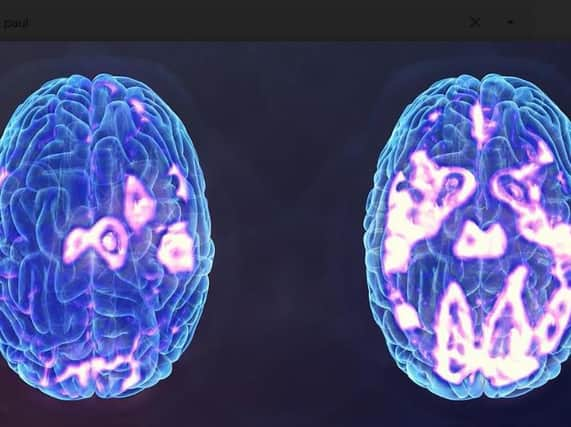New treatment for people in Northern Ireland suffering from depression


Approved by the National Institute for Health and Care Excellence (NICE), TMS therapy is a series of repetitive, brief and highly focused magnetic pulses, used to stimulate brain cells.
TMS is a non-invasive, outpatient treatment with minimal side effects, currently used worldwide in the treatment of depression - and is usually prescribed when anti-depressants have failed.
How does TMS work?
Advertisement
Hide AdAdvertisement
Hide AdWhen a nerve cell in the brain ‘fires’, an electrical impulse travels along its length. It communicates with other nerve cells by releasing chemicals which create an electrical impulse in those other cells.
In depressed patients, the electrical activity in certain areas of the brain have been shown to be reduced.
TMS uses a small focused electromagnetic coil, to rapidly pulse a magnetic field to a targeted area of the brain.
The magnetic pulses induce an electrical current in the brain, stimulating the nerve cells and gradually increasing the brain activity to normal levels.
Drumkeen Private Healthcare
Advertisement
Hide AdAdvertisement
Hide AdLiving with depression is hard, but Major Depressive Disorder (MDD) can be especially difficult when one treatment after another doesn’t help. Finding the right solution can take time, but TMS may be the treatment which will help YOU start feeling you again.
If you have been diagnosed with depression and medication is not working, or the side effects are intolerable, talk to Drumkeen Private Healthcare about TMS therapy
(Tel: 028 9562 2212 or [email protected])